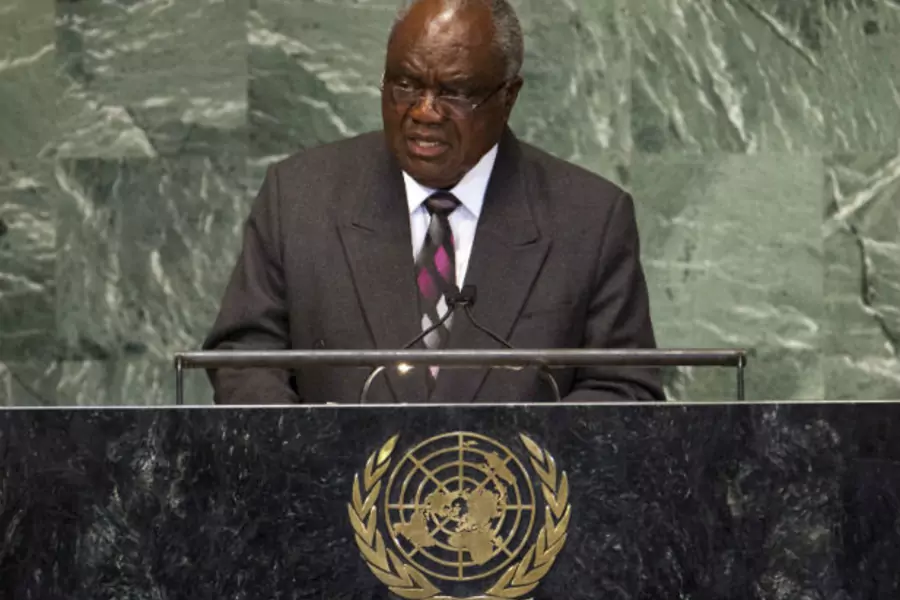Namibia’s President Wins Mo Ibrahim Prize for Achievement in African Leadership

More on:
The 2014 Mo Ibrahim Prize for Achievement in African Leadership has been awarded to the Namibian president, Hifikepunye Pohamba. He is set to leave office later this month. Mo Ibrahim, British-Sudanese telecom billionaire, established the prize in 2006. It may be awarded annually to an elected African head of state who promoted good governance and left office in accordance with the constitution. The prize comprises of $5 million, spread over ten years, followed by $200,000 a year for life. Among other things, it is intended to free African leaders from the financial concerns that have led some of them to cling to power.
Pohamba is the first person to have received the prize since 2011. It has been awarded only three times previously: to Mozambique’s Joaquim Chissano (2007), Botswana’s Festus Mogae (2008), and Cape Verde’s Pedro Verona Pires (2011). Other years, the selection committee found no qualified candidate. The lack of laureates is commonly taken to be an indictment of the quality of African leadership. The committee has made two exceptional awards, to Nelson Mandela in 2007, who left office as president of South Africa before Ibrahim established his prize, and Archbishop Desmond Tutu, then archbishop of Cape Town and a founder of the Truth and Reconciliation Commission, a part of South Africa’s transition from apartheid to “non-racial” democracy.
Pohamba is hardly a household name in the United States, nor is Namibia, which has as grim a history as any other African state. Both deserve to be better known. Namibia was a German colony, also known as German Southwest Africa, established in 1884. The second colonial governor was Ernst Heinrich Göring, father of one of the leading Nazi politicians, Hermann Göring.
The German repression of the native Herero and Namaqua (Nama) peoples was so dire that it has been cited by some as a dress rehearsal for the Holocaust. Even though Namibia only became a trusteeship of South Africa after World War I, it felt the full rigors of apartheid when the system was established in 1948. Namibia achieved full independence in 1990.
Today, it has a population of about 2.2 million. The largest ethnic group is the Ovambo, who comprise half the population. The Kavangos make up 9 percent of the population, the Herero and Nama account for 7 and 5 percent of the population respectively, and whites are about 6 percent of the population.
Under Pohamba, Namibia has become something of a poster child for what can be accomplished through constitutionalism, the rule of law, and good governance. The Mo Ibrahim Index of Good Governance ranks Namibia sixth on the continent, trailing after Mauritius, Cape Verde, Botswana, South Africa, and the Seychelles. The Ibrahim leadership prize committee noted Pohamba’s respect for the constitution, the rule of law, media freedom, and human rights. It also noted his active efforts on behalf of racial reconciliation. On Pohamba’s watch, Namibia also enjoyed significant economic growth, and a small but successful land reform program, in which mostly unused white-owned land was purchased by the government and distributed to poor blacks, was implemented.
More on:
 Online Store
Online Store